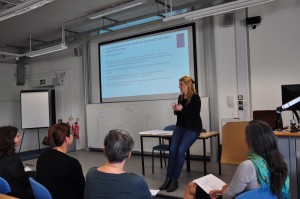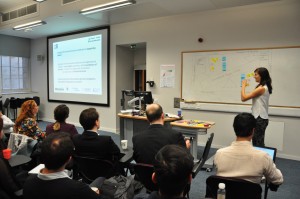Nearly one hundred practitioners, researchers, students, and activists gathered at King’s College London 24-25 October 2015 to consider the relation between law and hegemony in a critical and creative atmosphere. King’s Water hosted the Eighth International Workshop on Hydro-Hegemony, “HH8: Law & Hydro-Hegemony”, this past weekend. The event was run as an interactive, participant-led workshop of collaborative learning rather than a traditional academic conference. Participatory small and large group discussions, practical simulations, and teaching sessions explored the following questions:
- How does the way international law is made help or hinder its use as a counter-hegemonic tool?
- How should law confront hydro-hegemony and power inequalities?
- How should law and activism approach issues of state sovereignty in hydro-hegemonic systems?
- How does law serve as both a liberating tool of justice and an oppressive instrument of hegemony?
- Can international law change, either in content or structure, to become more effective in countering harmful hydro-hegemonic realities? If so, how?
- What is the role of international law in governing potentially hegemonic virtual water trades?
- How can international law influence water resources distribution in aquifers and basins?
- How might human rights discourses and systems help to redress hydro-hegemonic realities?



The Hydro-Hegemony Workshops were founded by the University of East Anglia’s Mark Zeitoun and King’s Water’s own Naho Mirumachi. HH8 was led by King’s Water PhD researcher Becca Farnum along with Steph Hawkins and Mia Tamarin of the London Water Research Group.
For more about the conference, including a concept paper on “The Role of International Law in Hydro-Hegemonic Arrangements“, visit https://lwrg.wordpress.com/news/events/hh8/.

Comments are closed.